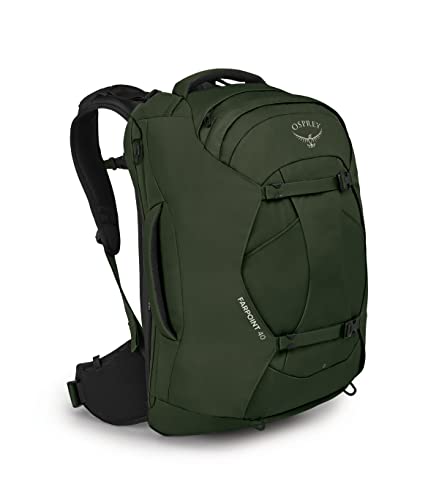
Which is the real travel MVP — the roomy Farpoint that swallows souvenirs, or the nimble Transit that dodges airline wrath?
Ever had a backpack ghost you mid-trip? Compare the Osprey Farpoint 40 and DEUTER FUTURA PRO 40 — one a travel-world favorite, the other a hiking-leaning German classic. This quick guide sizes up design, comfort, organization, and value for travelers.
Carry-on Champion
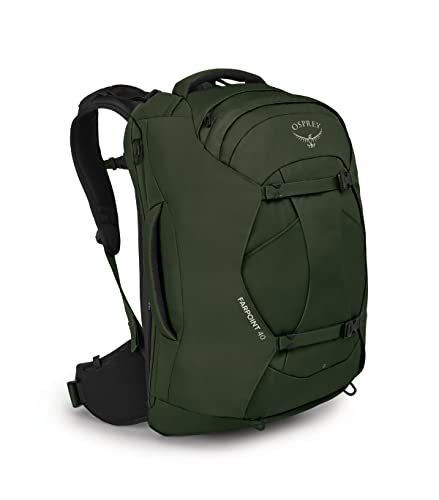
A great pick if your priority is airline-friendly travel without sacrificing everyday comfort. It balances packability and organization well, though it’s not the top choice for technical hiking or heavy long-haul loads.
Ventilated Comfort
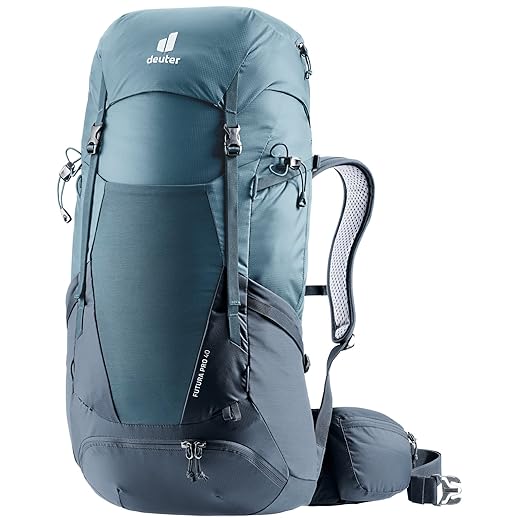
Built with hikers in mind, it’s comfy over long miles and very solidly made. Expect superior ventilation and load support, though it trades a bit of carry-on convenience and weight compared with travel-focused packs.
Osprey Farpoint 40
Deuter Futura Pro
Osprey Farpoint 40
Deuter Futura Pro
Osprey Farpoint 40
Deuter Futura Pro
Design & Specs: What’s Under the Hood?
Two design philosophies in one airport terminal
Think of the Farpoint as a slick carry-on suit: light, tidy, and built to slip under the seat (or into the overhead) without a fuss. The Deuter Futura Pro is the stiffer, outdoorsy cousin: more frame and airflow, built to carry heavier loads comfortably on trails rather than through security lines.
Osprey Farpoint 40 — travel-first, panel-loader
Osprey’s Farpoint is a true travel pack: 40L capacity, a travel-friendly clamshell/panel opening, and a stowaway harness and hipbelt so security checks don’t turn into a wrestling match. It’s noticeably lighter than a typical framed hiking pack, and includes a front-panel organizer and padded laptop sleeve. Small design quirks travelers notice: hipbelt pockets are on the snug side for big phones, and the backpanel trades ventilation for a slimmer, packable profile. Fits most airline carry-on rules comfortably and comes in multiple colorways.
Deuter Futura Pro 40 — hike-ready, structure-first
Deuter’s Futura Pro is a 40L pack built like a tank for long walks: measured at about 1620 g (heavier than the travel-focused Farpoint), it has an internal frame or structured support, a pronounced ventilation backpanel, and an ergonomic hipbelt with practical pockets. Materials lean heavier-duty and abrasion-resistant. Access is more trail-oriented — top access plus multiple external pockets — so it’s easier to grab water or a map on the go but a little fussier for full-panel packing. May be borderline for strict airline carry-on limits depending on how you load it; colors and trims are typically classic Deuter tones.
Feature Comparison Chart
Comfort & Carrying: Will Your Back Thank You?
Suspension & frame
Farpoint leans travel-light: a minimal suspension and a soft, packable backpanel that tucks into the case for airport tango. It won’t cradle very heavy loads, but it makes shoulder checks and security lines painless.
Deuter brings proper trail tech — a more rigid internal structure that holds shape and shifts weight onto the hips instead of your shoulders. That extra structure is why it weighs noticeably more (about 1.62 kg).
Shoulder straps & hipbelt performance
Farpoint’s straps are comfortable for day use and short treks, and the stowaway harness/hipbelt is brilliant at dodging conveyor-belt drama. Hipbelt pockets are tight on today’s oversized phones.
Deuter’s shoulder straps and wide ergonomic hipbelt are thicker, better contoured, and include useful pockets — they actually move weight to the hips where it belongs on long walks.
Ventilation & heat management
Farpoint trades airflow for packability; expect more back contact and modest breathability.
Deuter’s air-mesh ventilation and gap between backpanel and pack keep you cooler on climbs and multi-hour walks.
Perceived weight, stability, and packing behavior
Organization & Accessibility: Find Your Stuff Fast
Pocket layout & quick access
Osprey Farpoint 40: clamshell front-opening main compartment for suitcase-style packing, plus a padded laptop/tablet sleeve tucked against the back panel and a small zip top pocket for sunglasses/boarding pass. Hipbelt pockets exist but are snug — good for cards, not for giant phones.
Deuter Futura Pro 40: hiking-style pockets everywhere — zippered top-lid pocket, roomy front pocket, stretch side pockets, and generous hipbelt pockets that actually swallow a phone. You get more surface-access options on the trail.
Electronics, dividers & dirty-gear handling
Farpoint: internal mesh pockets and a dedicated sleeve keep electronics tidy and easy to pull at security — lay the pack flat, slide the laptop out. No dedicated shoe compartment, but the clamshell lets you isolate dirty gear into a corner or a stuff-sack.
Deuter: internal zip organizers and divider options vary by model; expect to stash wet/dirty items in a compression sack in the bottom or front pocket area. Hydration sleeve makes water access simple on hikes.
External attachments & travel security
How fast at security & packing tips
Durability, Maintenance & Value: How Long Will It Last?
Materials & construction
Osprey Farpoint 40: built with travel-focused, lighter-weight fabrics and reinforced stress points—good abrasion resistance for airport floors and taxi trunks, less overbuilt for bush bashing. Primes for years of city trips if you don’t constantly slam it into granite.
Deuter Futura Pro 40: heavier, rugged materials and a ventilated back frame (pack weight ~1620 g) mean better abrasion resistance and sturdiness on trails. Designed to shrug off branches, scrapes, and heavier loads.
Abrasion, water resistance & longevity
Repairs, cleaning & brand support
Value, resale & who should buy
Both brands hold resale value well (Osprey for travel crowd, Deuter for trekkers). Choose Farpoint for city-savvy longevity, Deuter if you want a pack that ages like stubborn trekking boots—only getting better with mud and stories.
Final Verdict: Which Packs Better?
For most travelers the clear winner is the Osprey Farpoint 40 — it’s lighter, has a stowaway harness, and beats airport stress with carry-on friendly organization and easy security handling. It wins overall for frequent flyers and city explorers who value minimal weight and fast transitions.
Choose the Deuter Futura Pro 40 when you expect real hikes, heavy loads, or need superior back support, ventilation, and clip-on organization for active adventures. Recommendation: Farpoint 40 as the default travel pick; Deuter Futura Pro 40 for hikers and multi-day treks. Which pack makes you smile when hoisting it into the overhead bin? Pick that one — and enjoy the trip. If you fly light and move fast, the Farpoint will save your back and your boarding time; if you trek off-road, the Deuter keeps you comfortable on long miles.




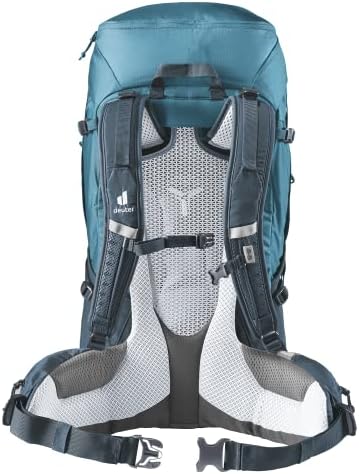
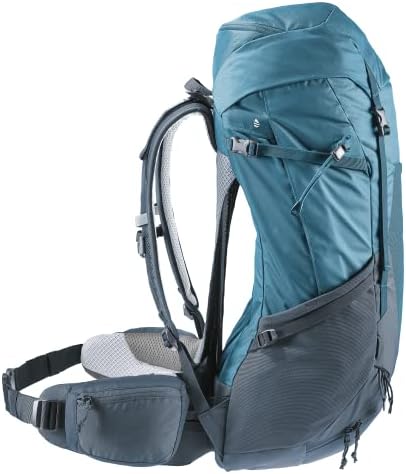

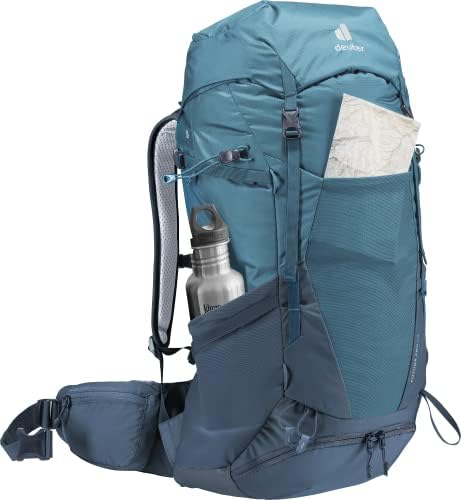




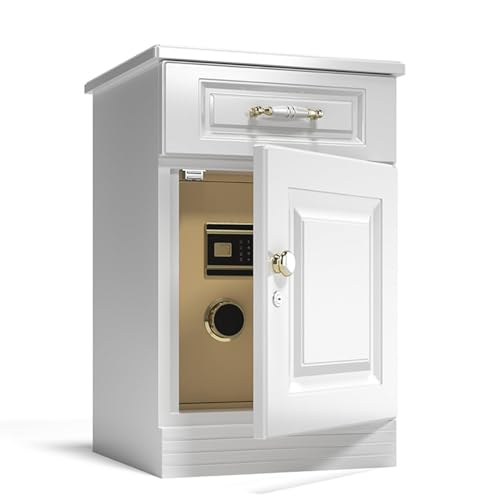

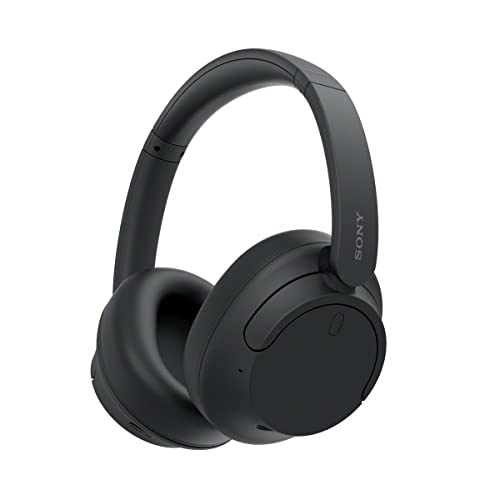

I’ve got the Farpoint and honestly it’s been perfect for weekend city trips. Not made for heavy alpine loads tho.
One minor gripe: the mesh outer pocket stretches out if you stuff too much there — learned the hard way 😅
Pro tip: don’t keep heavy items in outer pockets. Keeps bag shape intact.
I wrap fragile items in a scarf and stash them inside to avoid pocket stretch. Works well!
Yeah that pocket is more ‘splash-and-go’ than storage. I use it for a water bottle + map only.
Good tip — we noted mesh durability is fine for casual use but can deform if overloaded frequently.
Neutral take: both are great for their intended uses. I switched from Osprey to Deuter a year ago and don’t regret it, but I still miss how lightweight the Osprey felt for flights.
Quick poll: who here uses these as daily commuter bags vs travel-only? I’m tempted to use Deuter daily but worried it’ll look too “hiker” in the office.
I use Deuter daily and nobody cares. But my office is casual lol. If you’re in a formal place, maybe Farpoint or a sleeve-cover helps.
We saw both used as commuters. The Farpoint is more discreet; Deuter has a sportier look. If you care about office aesthetics, Farpoint leans more city-friendly.
Short and sweet: if you’re a city traveler who also does occasional hikes, Farpoint. If you’re more into trail comfort and back ventilation, go Deuter.
That’s the TL;DR we aimed for — Farpoint = travel-first, Deuter = trail-first with travel capabilities.
Exactly my take. I flipped between them before choosing Deuter for warm-weather treks.
Long post incoming — my travel style is weird so I tested both for 3 months:
1) Flights & airports: Farpoint wins. It compresses nicer and fits overheads.
2) Hiking & long walks: Deuter wins hands down. The lumbar support and airflow make it bearable.
3) Aesthetics: Farpoint is sleeker; Deuter is more “actually functional”.
Pro tip: if you want to convert a bag between city/trail regularly, get some removable packing cubes and a sternum strap extender. Saved my back and sanity.
Also, anyone else think the Deuter colorways are underrated? Atlantic blue is 🔥
Both are water-resistant but not fully waterproof. Use a rain cover for heavy downpours — it’s a cheap fix.
Packing cubes are underrated. Also slap a small dry bag inside for electronics.
Rain cover + ziplock for docs = peace of mind. 😉
How weatherproof is the Deuter? I’m worried about rain on multi-day trips.
Agree on the color. Bought the Atlantic and get compliments everywhere lol.
Thanks for the detailed write-up! The Atlantic colorway seems to be a crowd favorite — we noted that in the gallery too.
Ha, I went full nerd and measured every pocket 😂
Farpoint wins for quick airport runs and that stowaway harness is genius. BUT
– Deuter’s pocket layout = actual usable organization (no more digging for chargers)
– Farpoint zips feel a bit flimsy after a season
Also, the article didn’t mention the warranty differences — anyone know if Deuter’s customer service is easier to deal with than Osprey?
Zipper durability is a dealbreaker for me. I had a ripped seam on a Farpoint but Osprey fixed it. So far so good.
Osprey replaced a broken buckle for me no questions asked last year. Took a couple weeks but totally worth it.
Good catch — both brands have solid reputations. Osprey has a very well-known All Mighty Guarantee (repairs/replacements), and Deuter also offers long warranties depending on region. Specifics vary by seller, so keep receipts.
Ah yes warranty = underrated. Never leave home without photos of damage tho, they ask for proof sometimes.
Deuter was quick with a zipper repair for my friend in Europe. Customer service can depend on where you buy it from.
Thinking about buying one for a 10-day Europe backpacking trip. Weight limit about 15 kg including camera.
Which one would you recommend for comfort over cobblestones and trains?
For that usage, I’d pick the Deuter Futura Pro 40 — the suspension and back ventilation are better for long periods on the move, and it handles uneven surfaces well. But if you prioritize airport overhead fit, Farpoint is still solid.
Wanted to add: if you’re tall, try the Deuter before buying. The shoulder strap geometry just fit me better.
Also, the Farpoint’s hipbelt is removable — useful if you like a cleaner look on the plane.
Good reminder — body fit matters a lot. We recommend trying both with some weight in them if possible.
I had to adjust straps on both until they felt right. Bring a sweater to the store so you can test layering comfort!
Farpoint hipbelt removal = huge plus for carry-on vibes. But I personally prefer keeping it for hikes.
I love Deuter packs — the Futura Pro line is just so comfortable. The airflow back is a game changer in hot weather. Not surprised it beat the Farpoint in comfort tests.
Really enjoyed the side-by-side — helped me decide for my upcoming trip.
Quick thoughts:
– Farpoint felt lighter and simpler for carry-on only.
– Deuter looked comfier for longer hikes with heavier loads.
If anyone’s used both on multi-day trips, how bad is the hipbelt on the Farpoint for 20+ lbs?
Good question — we tested both with ~18–22 lbs. The Farpoint’s hipbelt is adequate for short hauls but less padded than the Deuter; you’ll feel it on day hikes. For long treks, Deuter’s suspension wins.
I carried ~20 lbs with the Farpoint for a weekend and it was ok, but my shoulders got sore by the second day. If you can, try them both with weight in-store.
If you like minimalist style and plan frequent flights, Farpoint. Otherwise Deuter for comfort. That’s my two cents.